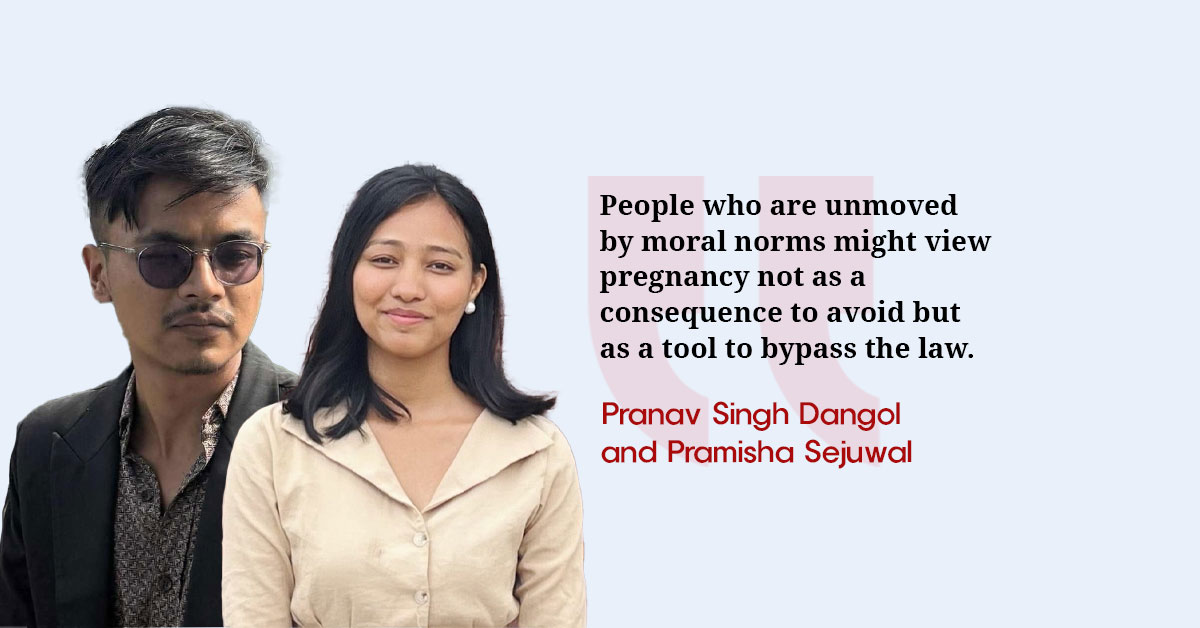

KATHMANDU: Nepal’s criminal law has, since 2017 AD, strictly prohibited bigamy. Section 175 of the Muluki Criminal Code makes it a punishable offense for a married man to marry another woman during the subsistence of the first marriage, and for a woman to knowingly marry a man who is already married.
Violators face one to five years of imprisonment and fines of up to NPR 50,000, and such marriages are automatically void. The prohibition was introduced to align Nepal with modern principles of gender equality and to remove long-standing cultural tolerance for polygamy.
However, this absolute ban has exposed a painful gap. When a married man deceives another woman into a relationship and fathers a child with her, the law offers no marital recognition, no property rights, and no social legitimacy for the woman or the child.
In Nepal’s social reality, where unmarried motherhood carries heavy stigma, such women are often abandoned not only by the man but also by their own families. The child, too, may grow up without the father’s name, inheritance, or care. The current law punishes the man for bigamy but leaves the second woman and child legally invisible.
The Ministry of Law is now proposing an amendment to address this gap. The change would allow a second marriage to stand if an extramarital relationship results in pregnancy or childbirth. The Ministry insists this is not an endorsement of bigamy but a way to protect women and children from abandonment. It argues that without such recognition, the second woman is left with no support, the child’s rights are jeopardized, and both suffer lifelong social and economic harm.
On the surface, the amendment seems compassionate. It acknowledges the harsh reality that laws designed to punish wrongdoing can sometimes hurt those who were wronged. Yet the proposal also introduces a serious contradiction: bigamy would remain a crime, except in cases where pregnancy occurs. This exception risks becoming a loophole that could be exploited. People who are unmoved by moral norms might view pregnancy not as a consequence to avoid but as a tool to bypass the law.
Another concern is that the amendment does not distinguish between women who were deceived and those who knowingly entered relationships with married men. In legal and moral terms, intent matters. A woman who was misled into believing her partner was single is a victim and deserves legal protection.
A woman who knowingly participates in such a relationship is making a conscious choice. Treating both cases identically risks blurring the moral boundaries the law is meant to reinforce.
Our view is that the law should protect deceived women without creating a blanket exemption to the ban on bigamy. This could be achieved by guaranteeing property rights, child support, and financial compensation for the second woman, without automatically granting marital status.
The law could require a factual inquiry into whether she knew about the man’s marital status before deciding on remedies. In this way, genuine victims receive justice, but deliberate violations of marital norms are not rewarded.
Internationally, most modern legal systems treat bigamy as both illegal and socially unacceptable. Countries such as the United States, European nations, Japan, and China reject it on the grounds that it fosters inequality and destabilizes families.
In some Middle Eastern and African countries, polygamy is legal under religious or customary law, but those arrangements exist within distinct cultural and legal frameworks. Nepal’s proposed amendment does not openly endorse polygamy, but by creating a pregnancy-based exception, it risks weakening the clarity of its prohibition.
The question, then, is whether the law should preserve the moral ideal of monogamy at all costs or adapt to minimize harm in the real world. Ideally, it should do both.
The state cannot ignore the suffering of women and children abandoned under the current framework, but it must also avoid creating legal incentives for exploitative behavior. A more carefully drafted amendment, one that targets only genuine cases of deceit and enforces strong protections without automatically validating a second marriage, could strike this balance.
Laws are more than rules; they are instruments of justice. The challenge for Nepal is to close a loophole that leaves victims unprotected without opening a floodgate for the return of polygamy under a different name. With precision, compassion, and safeguards, it is possible to protect the vulnerable while keeping the principle of monogamy intact. The choice now lies in how wisely the law is written.